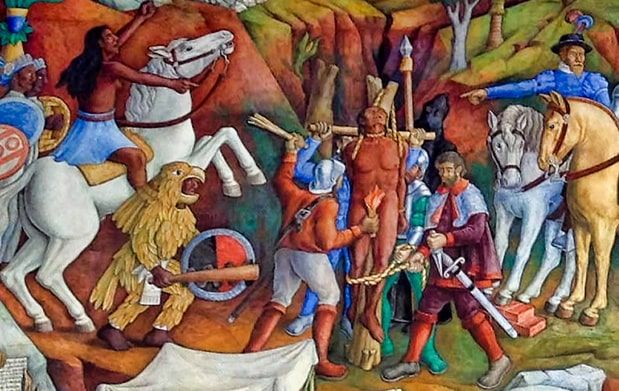Tangáxoan II, the last Cazonci who ruled Tzintzuntzan
On February 14, 1530, the Spaniards killed the last Cazonci. This act provoked the uprising of the Purépecha people, according to the legend, Eréndira's daughter Tangáxoan Tzíntzicha, was the leader during the rebellion.





